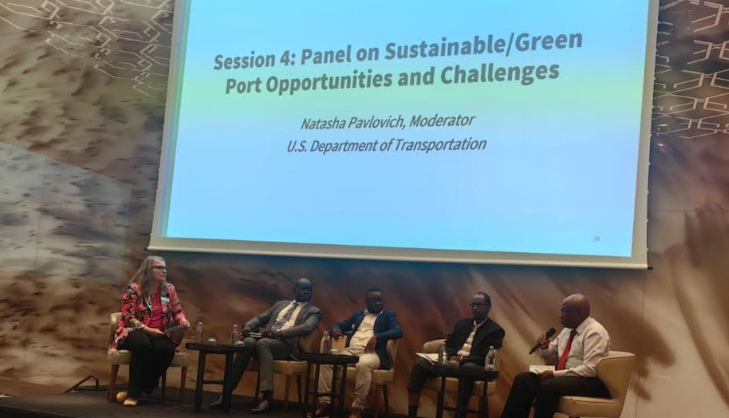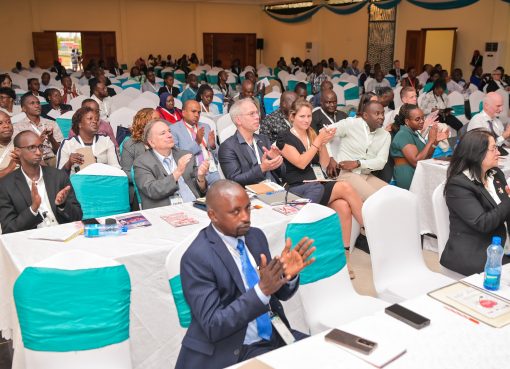Principal Secretary for Transport Mohammed Daghar, while officially opening a workshop in Nairobi on Developing Sustainable and Green Ports, said Kenya is keen on decarbonisation, alternative energy sources, digitalisation, smart port technologies, and building capacity in sustainable port development and operations.
PS Daghar reiterated that Kenya has taken impressive strides on zero emissions in transportation, which is resource intensive considering it is a developing country, thus the need for more investment to achieve its targets through cooperation with Development Partners.
“Kenya appreciates the long-standing partnership with the US in the shipping and maritime sector, ports and associated infrastructure development, and related areas of cooperation.” said the speech read on his behalf by Engineer Michael Muchiri.
The PS acknowledged that the transport sector contributes about 20% of our national greenhouse gas (GHG) emissions, where shipping in particular contributes about 3% of global emissions.
“Although Kenya does not have a huge registry of vessels, it is strategically located on the East African coast and therefore serves neighbouring landlocked countries of Uganda, Rwanda, Burundi, South Sudan, and the Eastern DRC.” Said PS Daghar
In 2023, Kenya handled 35.98 million MT of cargo throughput and 1.62 million TEUs of containerised cargo, thus prompting the growing shipping and maritime sector to take a front seat in the decarbonisation of the shipping and maritime industry.
The Ministry of Roads and Transport reviewed the Integrated National Transport Policy (INTP), where the Government has committed to implement environmental sustainability actions that will ensure development in maritime transport, progressively reducing carbon footprint.
Transport infrastructure development is now framed on resilience against climate extremes, also known as Climate proofing. Develop engineering standards coupled with design manuals and long-term strategies for the development of a climate-resilient transport sector.
Necessary regulations have been put in place to prevent and address fuel spills and other hazardous materials, judicious selection of transport modes by shifting cargo from road to rail, refined petroleum products by pipeline, and development of inland waterway systems where congestion is lower and population exposure is limited.
Since 2023, the Ministry has been promoting adoption of greener and cleaner mobility services, including supporting investments in electric vehicles, improved fuel-efficient vehicles, noise abatement in both vehicles and aircraft, modern aircraft technologies in aviation, Sustainable Aviation Fuel (SAF) and market-based measures impacting carbon footprint.
The workshop brought together representatives from the US Department for Transportation, US Department for State, US Embassy Officials, CEOs from various State Departments and Agencies of the Republic of Kenya, CEOs of intergovernmental organisations, the private sector, and the media.
By Joseph Kamolo Mutua




